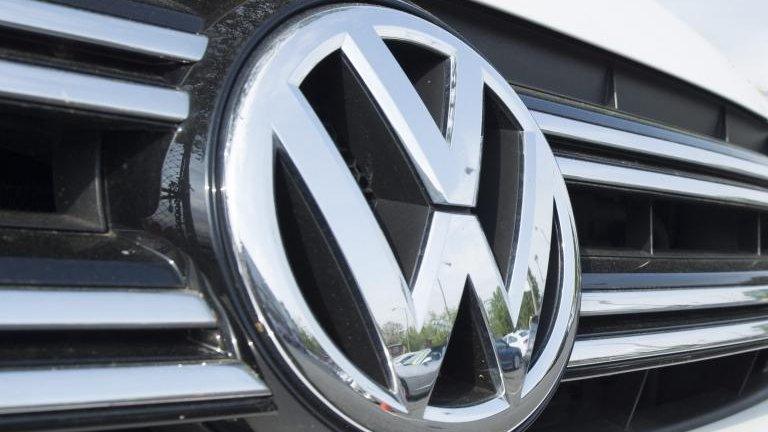Volkswagen 'fixes 470,000 UK diesel cars'
- Published
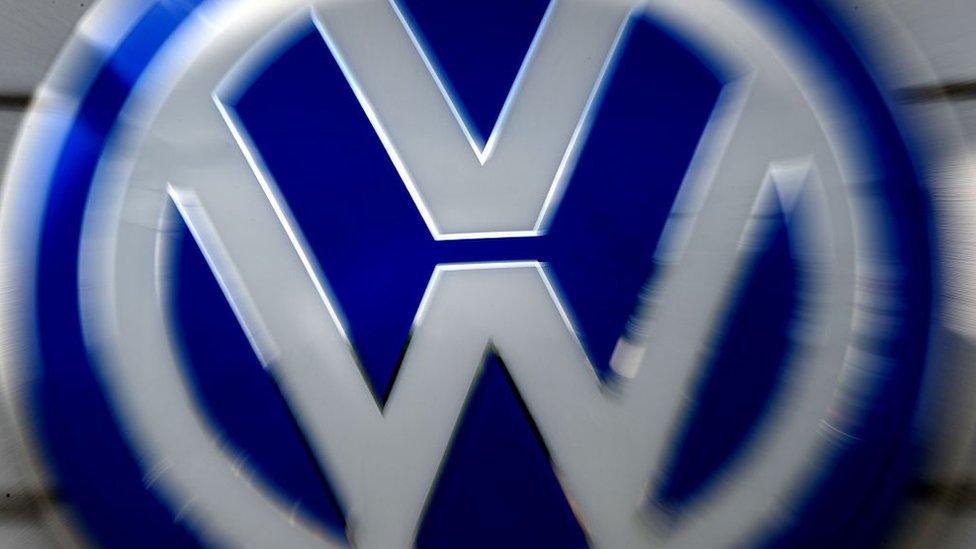
VW's top UK executive, Paul Willis, has said that of the 1.2 million cars in the UK affected by the diesel emissions scandal, 470,000 have been fixed.
"At the current rate, we are applying these measures to 20,000 cars a week," he told MPs on the Transport Committee.
But after he had left the hearing, Mr Willis was accused of lying to MPs over whether he had supplied the government with promised information.
A VW spokesman said Mr Willis had indeed handed over what was promised.
Mr Willis told the MPs there had been no redundancies in the UK because of the diesel dishonesty.
Indeed, the company was trying to recruit more people to help with the technical fixes, he said.
Many UK VW owners are angry that they will receive no compensation as a result of the scandal, unlike customers in the US.
But Mr Willis said there was "no legal basis for compensation".
He added there was no comparison between the situation in the US and Europe.
The scandal broke in 2015, when it emerged that the carmaker had installed "defeat devices" in its diesel models that allowed them to falsify the results of US pollution tests.
Accusation of lying
Mr Willis told the MPs that VW had handed over all the information asked for by the government so it could press on with inquiries.
Later on in the what became a heated committee session after Mr Willis had left - the Transport Minister John Hayes, who is looking at the diesel emissions scandal's impact in the UK, said it was "not true" that VW had given him all the information requested.
Committee member Graham Stringer MP went further, saying of Mr Willis's testimony, "I have seen all sorts of evasive witnesses, but I think we have just seen somebody tell us absolute blatant lies."
Responding to the exchange, a Volkswagen spokesman told the BBC that Mr Willis has supplied what he agreed to supply, but that the government may have requested more.
The company will pay £1.1m for testing Volkswagen vehicles, but not the £0.9m needed to test other companies' vehicles.
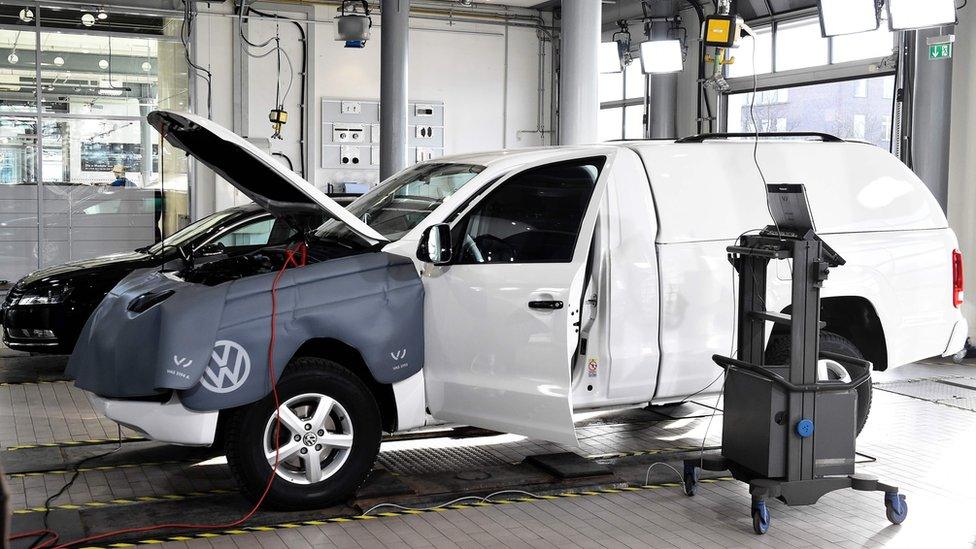
VW denies misleading millions of consumers as it claims it did not sell vehicles based upon low nitrogen oxide emissions.
In his testimony, Mr Willis had said "I don't think we did anything wrong".
For his part, Mr Hayes said this was a shift from the company's original position.
"I think VW acted extremely badly," he said.
"I think it is extraordinary in their evidence this afternoon they seemed to be uncertain about whether they had behaved badly or not.
"Yet when this scandal first broke their tone was a very different one," he added.
During the hearing Mr Hayes also asked about a report into the scandal written by lawyers Jones Day, which was commissioned by VW.
The MPs said VW had promised the committee that it would be published, but the carmaker had now decided not to.
Mr Hayes said one could "reasonably assume" that one reason is "that it contains information which contradicts what Volkswagen have said both publicly and to this committee".
More investigation
While VW has agreed to pay fines and compensation in the US amounting to more than $19bn, it insists that legally in Europe it did nothing wrong.
It accepts that 8.5 million vehicles in Europe were fitted with software that could detect when they were being tested for emissions.
But it denies that the software amounts to a "defeat device" under EU law.
Ian Yarnold, head of international vehicle standards at the Department for Transport told the MPs that he thought the device was "prohibited," but that he would need to gather evidence to determine if fitting the devices amounted to a criminal act.
Mr Hayes said he and his boss, transport minister Chris Grayling, would go to Germany next month to meet their counterparts and seek more information. He added that the government had not ruled out launching legal action against VW.
VW denies misleading millions of consumers as it claims it did not sell vehicles based upon low nitrogen oxide emissions.
The chairman of the Transport Select Committee, Louise Ellman MP, said that it had heard of complaints from customers whose cars had been subjected to Volkswagen's technical fix.
Mr Willis responded that there had been around 3,500 such complaints, which he said amounted to 0.75% of those whose cars had been recalled.
He insisted that in 65% of cases, the complaints were "subjective" and linked to issues such as the feel of the car and noise levels.
- Published15 February 2017
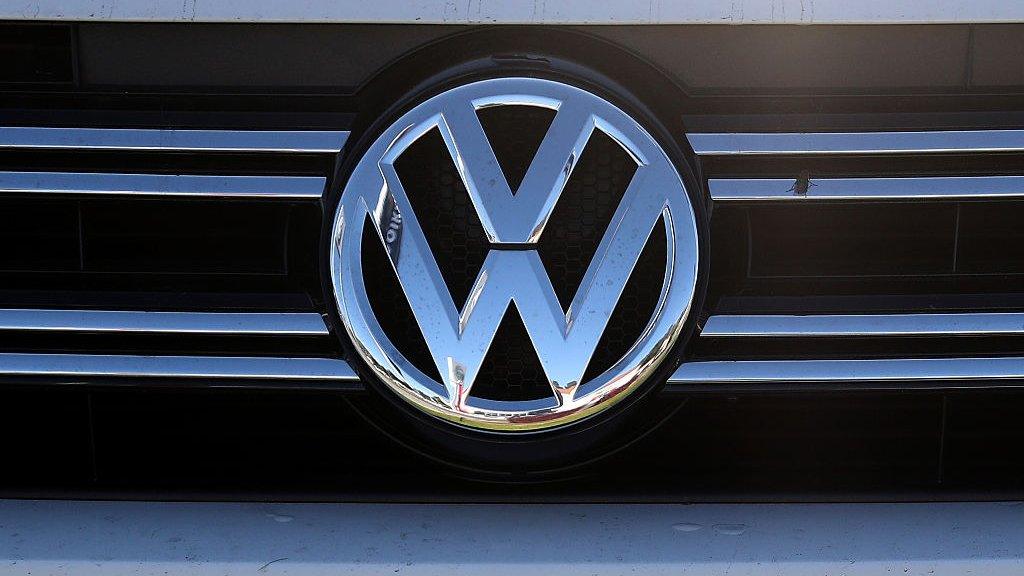
- Published5 February 2017

- Published1 February 2017

- Published10 January 2017
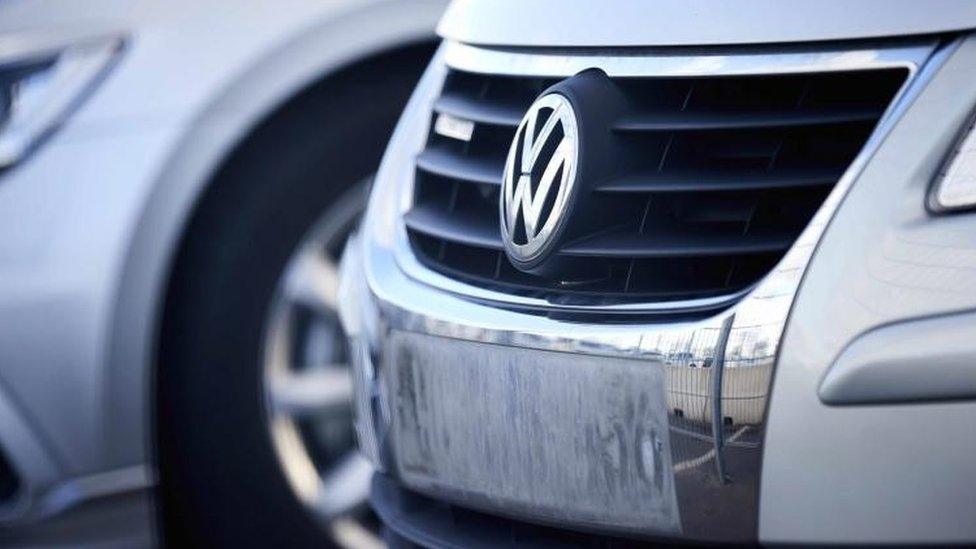
- Published9 January 2017
